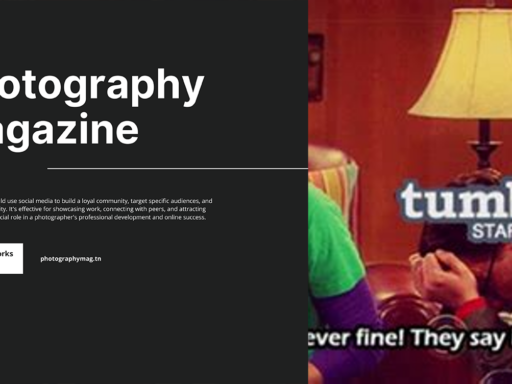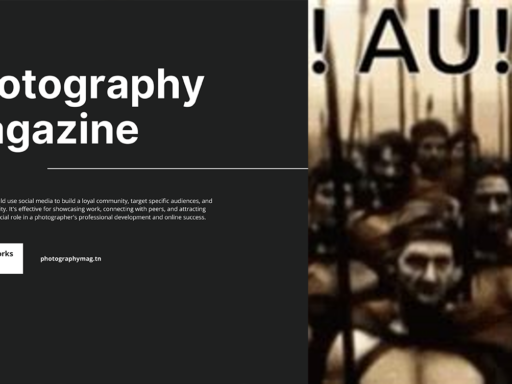Let’s Dive Deep into the Tumblr Origin Story
So, you want to know which country made Tumblr? Spoiler alert: it’s the good ol’ United States. That’s right, the digital wonderland known for cat memes, viral GIFs, and endless scrolling came crawling out of the bustling streets of New York City. Let’s unpack this piece of internet history because, let’s face it, knowing Tumblr’s backstory makes scrolling through your feed feel a tad more meaningful—or at least a bit more interesting when explaining it to your friends.
The Genius Minds Behind Tumblr
Back in the wilds of 2007, two web developers, David Karp and Marco Arment, teamed up to weave this enchanting tapestry of microblogging and social networking. Think of them as the dynamic duo of the digital realm. Karp, who had been tinkering with tech since he was a teenager, was brimming with ideas and ambition. On the other hand, Arment was like the silent yet formidable shadow, engineering the brilliance behind the curtain. Together, they birthed a platform that would forever alter how we share our lives online.
- David Karp: The visionary dream-maker who saw the potential of microblogging.
- Marco Arment: The coding wizard who transformed Karp’s dreams into reality.
What Exactly is Tumblr?
If you’re asking yourself, “What even is Tumblr?” you’re not alone! In simple terms, it’s like a potpourri of personal diaries mixed with social media. Imagine a space where you can express yourself freely, share quirky tales, reblog content, and connect with fellow humans (or a bunch of over-caffeinated cats). Whether you’re a deep thinker wanting to share philosophical musings, an artist showcasing your latest sketch, or someone who just truly appreciates the absurdity of life, Tumblr caters to all.
This platform perfectly balances the great conundrum of internet culture: the desire for deep connection versus the craving for memes that make you snort-laugh. It’s a tech-savvy utopia where users can create themed blogs, follow their interests, and indulge in the latest internet trends—all while hiding behind their computer screens in glorious anonymity.
Why Did Tumblr Blow Up Right Out of the Gate?
So, how did this fragile little baby of a website explode in popularity almost overnight? Simple: it understood the assignment. Tumblr launched at a time when people were searching for more expressive and less restrictive online environments, and boy, did it deliver by fulfilling those yearning minds with open arms. Here’s a rundown of a few factors that contributed to its instant success:
- Accessibility: Tumblr made creating and sharing content easier than ordering takeout. Users could post text, images, quotes, links, audio, and video with just a few clicks. Goodbye, complicated HTML coding!
- Community Vibes: The heart of Tumblr lays in its communities. Users could bond over shared interests, inside jokes, and fandoms, thus creating pockets of quirky culture within the larger ecosystem.
- Tools for Creatives: Artists, writers, and creators found refuge in a platform that embraced creativity. With customizable blogs and reblogging features, their works were easily sharable, helping them gain visibility.
Then Came Yahoo!—The Acquisition
Fast forward to 2013, and enter the technology heavyweight—Yahoo! Inc. The platform’s rise didn’t go unnoticed, and Yahoo! decided to swoop in like a dramatic hero in a rom-com, acquiring Tumblr for a jaw-dropping $1.1 billion. Talk about corporate love! This acquisition was seen as a double-edged sword. On one side, Tumblr gained access to resources and stability, but on the flip side, it had to navigate the ins and outs of corporate demands—cue the dramatic music.
The marriage of Tumblr and Yahoo! was supposed to shine bright like a diamond, but as with many relationships, it had its ups and downs. While Yahoo! had financial backing, many users felt the creative spirit of Tumblr was stifled under corporate rules. This tug-of-war between artistic freedom and corporate structure creates some memorable moments, would you not agree?
The Decline of an Era
Fast forward a few more years—2017 rolls around and things get even messier! You’d think it couldn’t get worse, yet here we are: Yahoo! gets absorbed into Verizon, and Tumblr’s future hangs in the balance like a slightly water-damaged piñata. Users grow restless, and the searches for memes and media began to dwindle. Verizon failed to nurture the platform’s creative essence, leading to many users jumping ship faster than you can say “Tumblr nostalgia.”
The Legacy of Tumblr
Despite its ups, downs, and roundabouts, Tumblr remains a cultural touchstone—a platform that introduced us to the weird, the wonderful, and everything in between. Think of it as the eccentric uncle of social media. You never know what you’re going to get, but it’s bound to be memorable. Whether it was the rise of the “superwholock” fandom or the infamous “sexymen,” Tumblr introduced us to a new language of memes that will always have a place in our serotonin-stuffed hearts.
“The strong emotions, the fierce opinions, and the unimaginable levels of creativity—it’s like Tumblr was a wild, unfiltered art gala that anyone could crash.”
Where Does Tumblr Stand Now?
Now that we’ve explored Tumblr’s majestic rise to fame and its subsequent journey through the corporate chaos, you might wonder, “What now?” The platform has seen various changes, but it remains a haven for niche communities, fandoms, and beautiful creativity. As of the latest updates, Tumblr seeks to revolutionize itself once more, embracing user feedback to refine its offerings.
Despite losing some of its early lustre, Tumblr still thrives on the passion of its loyal users who engage in every iteration of the classic “reblog.” The platform remains a vibrant space for content creation and sharing, adorned with colorful content that’s equal parts chaotic and charming.
So, Which Country Made Tumblr? You Know the Answer!
In the grand scheme of digital history, Tumblr’s legacy thrives despite its twists and turns. It remains a proud product of the United States, a testament to the creativity and quirkiness that defines so much of our internet culture. So the next time you lose an afternoon spiraling down the infinite rabbit hole of fan art, memes, and gifs on Tumblr, remember the charming tale of its origin, the minds who brought it to life, and the colorful community that keeps it thriving!
And there you have it! You’re now armed with all the necessary knowledge to dazzle your friends with your casual Tumblr trivia. Go forth, and may your reblogs be countless and your creative juices flow endlessly!





